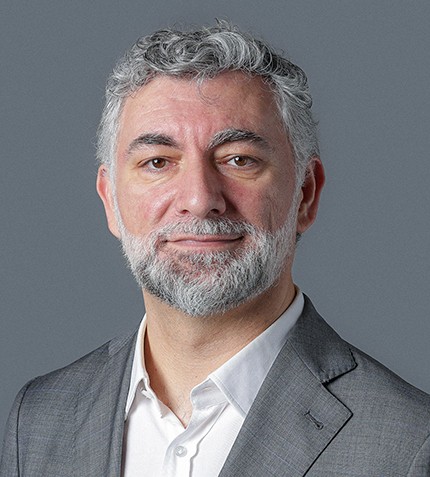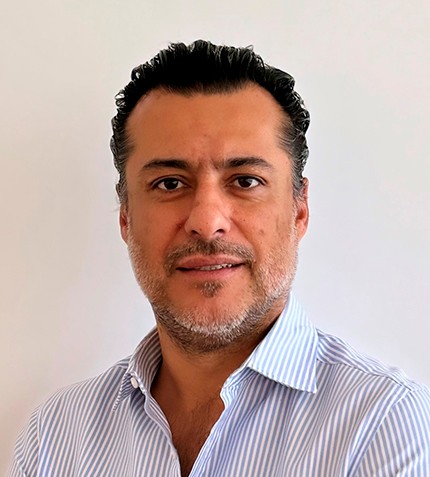
"Since 2012, Yara has invested R$15 billion in Brazil, promoting domestic production of inputs and reducing dependence on imported fertilizers."
Gianni Canneti
VICE PRESIDENT OF STRATEGY AND INNOVATION, YARA BRAZIL
What is Yara’s presence and main products in Brazil?
In Brazil, Yara has invested R$ 15 billion in its operations over the past decade, and counts over 20 blending and production units and more than 5,000 employees. The Rio Grande Complex in Rio Grande do Sul is now operating at 100% of its production capacity: 1.1 million t/y of granulated fertilizer volume and 2.2 million t/y in distribution, blending and bagging capacity.
For the Brazilian market, Yara's main highlight is the ‘YaraBasa’ special fertilizer line. It consists of the eight main nutrients required by plants and can be applied to any crop, soil or region, addressing phosphorus deficiency. Yara is launching 15 new products in 2023, including the YaraVita NRhizo, a high-performance organo-mineral fertilizer that combines nutrients with seaweed extract. Developed for treating legume seeds, such as soybeans and peas, it has the potential to increase soybean crop productivity by 3.3 bags per hectare and offers low carbon emissions.
How do Yara’s products help mitigate climate change?
Yara places a significant emphasis on the correct use of fertilizers and the reduction of carbon emissions. Currently, there are over 150 research projects in Brazil in partnership with various institutions, including 13 focused on coffee cultivation. Yara also offers the Atfarm digital solution, a tool for crop monitoring and variable-rate nitrogen fertilizer application. This tool allows for monitoring biomass changes over a specific period. We are also investing in solutions for the food chain, decarbonization, digitization, and green ammonia production. One such example is the project to replace natural gas with biomethane in the Cubatão Industrial Complex in São Paulo, enabling the production of green ammonia for industrial segments and green fertilizers for agriculture.
What is Brazil’s role in global food security?
In 2022, according to the CNA, more than 233 million tons of agricultural products were exported, in addition to meeting domestic demand. The country plays a critical role in global food supply, and is the world's largest fertilizer importer.
What is the importance of Brazil in the agri-food value chain and global food security?
Brazil is one of the world's largest producers and exporters of food. In 2022, according to data from the National Confederation of Agriculture and Livestock (CNA), more than 233 million t of agricultural products were exported, in addition to meeting domestic demand. The country plays a critical role in global food supply, underscoring the importance of access to fertilizers and domestic production.
Brazil is the world's largest fertilizer importer. While global demand increases by an average of 2% per year, Brazil's growth rate is 4%. These numbers highlight Brazil's pivotal role in global food security and reinforce Yara's commitment to responsible and environmentally friendly food production. Since 2012, the company has invested R$15 billion in Brazil, promoting domestic production of inputs and reducing dependence on imported fertilizers.
Yara's strategy involves offering high-value-added nutritional solutions that enhance productivity, profitability, and environmental sustainability, aligning with the current state of Brazilian and global agriculture. Farmers are increasingly seeking inputs that provide essential nutrients for plants with low greenhouse gas emissions, contributing to regenerative agriculture that not only protects the environment but also restores its natural characteristics.
Yara's initiatives, including the use of clean energy sources, have the potential to reduce carbon emissions from critical activities such as freight transportation and heavy industries. Brazil offers unique opportunities to lead the transformation of agriculture through the adoption of renewable energy sources, sustainable practices, and carbon neutrality in the food industry and other sectors of the economy.
Do you have a closing message?
Our ambition is to cultivate a positive food future for nature, driving us to expand knowledge and efficiency in the production of high-tech nutritional solutions that deliver even more added value and productivity. This ambition is increasingly reflected in the company's operations and business strategy, with green ammonia becoming a reality and positively impacting farmers, the food industry, and end consumers.
Yara has already reduced the carbon footprint of its current nitrate-based fertilizer portfolio by almost half. Since 2005, we have reduced emissions from our global operations by nearly 45% through the installation of catalyst technology in our plants, which substantially reduces nitrous oxide (N2O) emissions. With green fertilizer technology, we can further reduce emissions by 80 to 90%, reinforcing our commitment to contribute to a carbon-neutral future for food production.










